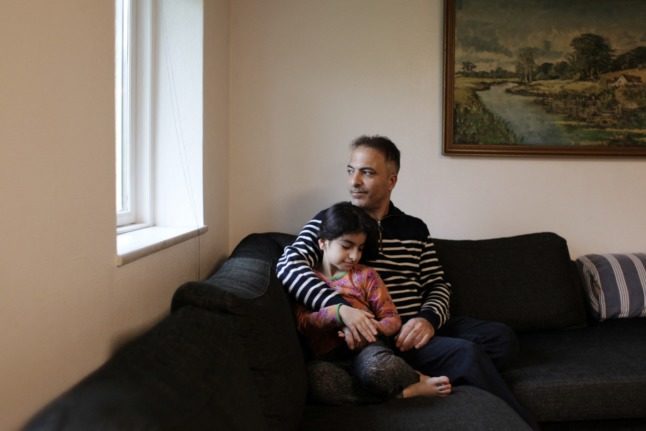In his short career, Ochlik covered fighting in the Democratic Republic of Congo in 2008, the 2010 presidential election and cholera epidemic in Haiti and the 2011 Arab Spring revolutions in Tunisia, Egypt and Libya.
Ochlik was “very humble, full of energy, very curious,” said Franck Medan, head of the photo agency Wostok Press, where Ochlik interned in 2003 while still a student at the Icart Photo school in Paris.
“Even at 20 years old, he was already a great photographer who wanted to be as close as possible to the event,” Medan told AFP.
Barely out of his teens and still a student, Ochlik set out alone for Haiti in February 2004 to cover the riots surrounding the fall of president Jean-Bertrand Aristide, eventually earning a prize for young reporters.
The head of the Wostok Press photo agency at the time applauded the photographer for his “extraordinary talent”.
“Journalists as talented as him are rare,” said Slavica Jovicevic at the international photojournalism festival Visa Pour l’Image, which displayed Ochlik’s Haiti photos.
Upon his return from three weeks in Haiti, Ochlik said “war is worse than a drug”.
“You’re 20 years old and don’t really want to die, you’d give everything to be far, very far away and to have never come,” said Ochlik, who was born in the eastern French region of Lorraine.
But once the danger has passed, he said, “there you are with only one desire, one obsession: to return, again and again”.
In 2005, Ochlik co-founded photo agency IP3 Press to cover Paris news and global conflicts, and it was for the agency that he had gone to cover the Syrian conflict.
Ochlik was killed on Wednesday when a shell crashed into a makeshift media centre set up by anti-regime militants in Homs, the flashpoint city in a nearly year-long conflict in Syria.
His photos have appeared in The Wall Street Journal, Time magazine, Le Monde and others, and he won first prize in general news at the 2012 World Press Photo competition for his coverage of Libya.
His online portfolio (www.ochlik.com) includes many of his compelling images of war, along with his coverage of protests at home and the 2007 French presidential election.
Marie Colvin, an American who worked for Britain’s Sunday Times, was also killed in the Homs shelling.


 Please whitelist us to continue reading.
Please whitelist us to continue reading.
Member comments